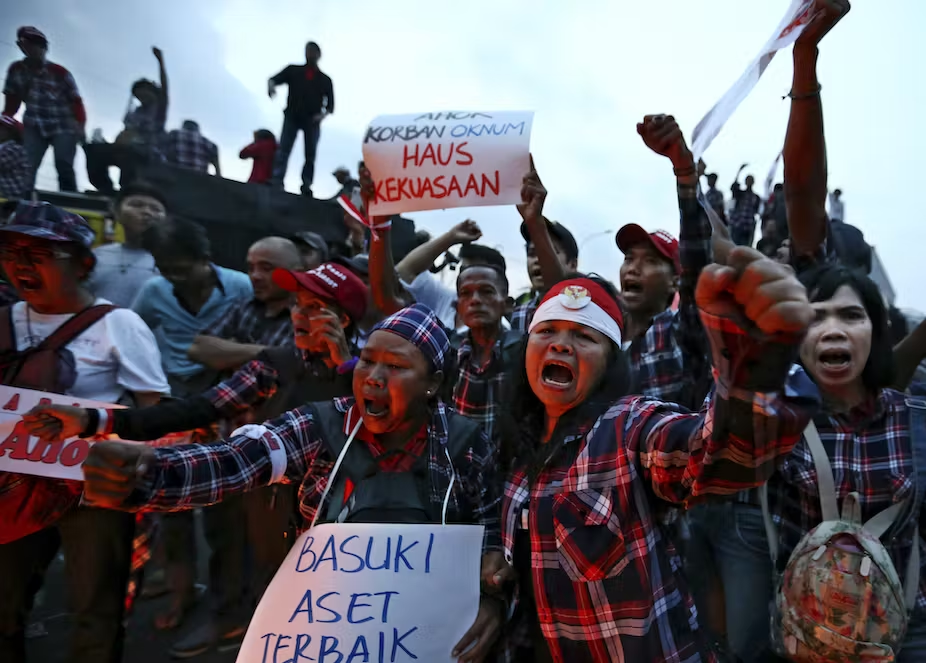The governor of Jakarta, Indonesia – a Christian – was convicted for blasphemy against religion earlier this year and sentenced to two years in prison.
The conviction has shocked observers around the globe. Since the country’s democratic transition in 1998, American politicians on both sides of the aisle, from Democrat Hillary Clinton to Trump’s Vice President Mike Pence, have praised Indonesia as a model Muslim-majority democracy.
Governor Basuki “Ahok” Tjahaja Purnama was convicted based on comments he made on the campaign trail in September 2016. He had stated that Islamists who cited a Quran verse to support their view that Christians should not hold high office were being deceitful.
An edited transcript of his speech, which made it appear as though Ahok was criticizing the Quran itself, was posted online. The video went viral. Islamist vigilante groups seized the moment to rally against the incumbent Christian governor and in support of Ahok’s opponents in the April 19 election.
It was a winning strategy.
They held the largest rally in Indonesian history “in defense of Islam.” Their movement propelled Ahok’s opponent into the governor’s mansion and Ahok into prison. Some observers saw Ahok’s 16-point defeat as a victory for Islamists, and a sign of the influence of an intolerant strain of Islam.
Since Indonesia’s democratization in 1998, it has been widely seen as a model of religious tolerance and pluralism in the Muslim world. Is Indonesia’s tradition of religious tolerance a thing of the past? Will Indonesia backslide into authoritarianism like its neighbors Thailand and the Philippines, or be taken over by Islamists like Turkey, Iran and Saudi Arabia? Or, might militant groups like the Islamic State (IS), which has already gained a foothold in the Philippines, make further inroads into Indonesia?
Drawing on more than 24 months of field work in Indonesia, I tackled these questions in my book on Islam and tolerance in this massive Muslim-majority democracy.
Neither secular nor theocratic
Indonesia is the world’s largest Muslim-majority country, a democracy and the largest country in Southeast Asia. It faces many of the same problems as other developing countries, including weak infrastructure, low-quality education and high levels of corruption. Composed of over 17,000 islands, Indonesia is also one of the world’s most diverse countries, which means that protecting minority groups is an especially important concern.


